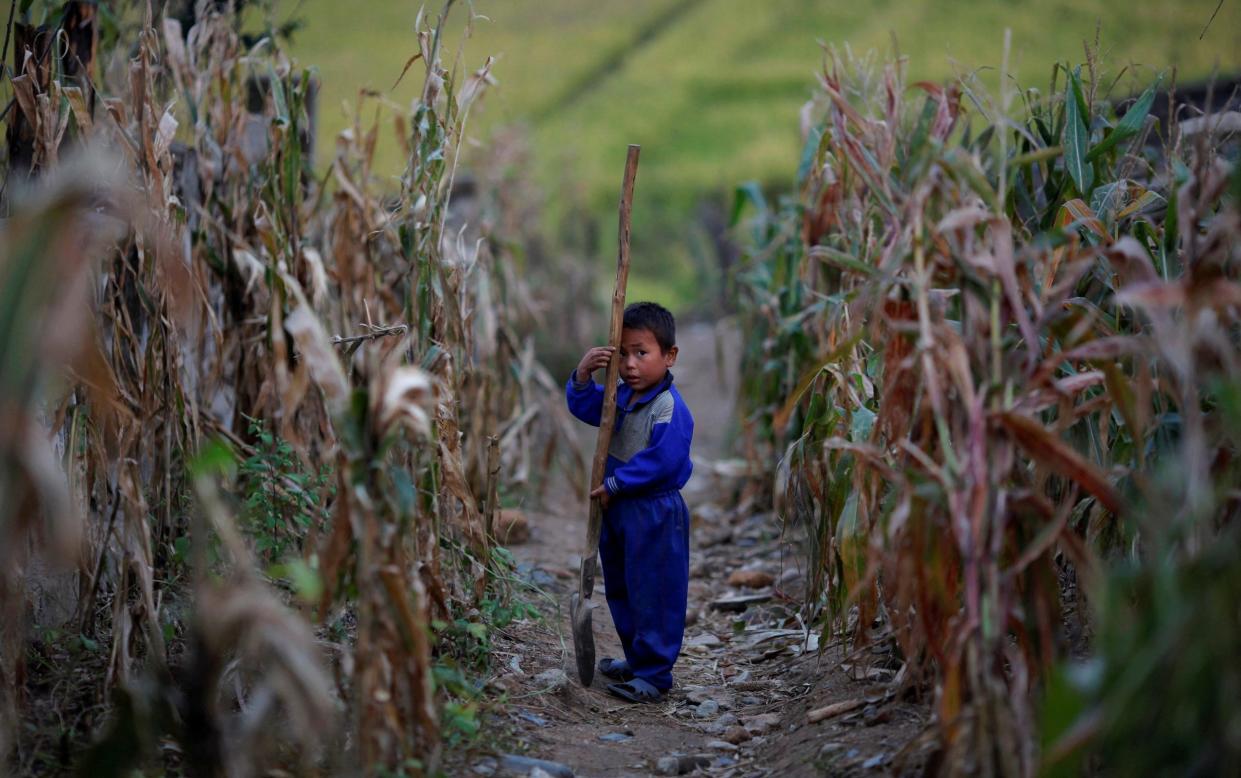North Korean parents leave children at orphanages amid chronic food shortage

North Korean children are reportedly being secretly dropped off at orphanages by desperate parents unable to feed them, amid chronic food shortages in the reclusive state.
The practice is said to be fuelled by the belief that orphanages are receiving supplies of food and medicine donated by the international community, despite restrictive Covid-19 policies that have severely hampered the flow of overseas aid.
“Women who are starving to death are secretly leaving their children … at night or in the early morning, and then they disappear with no trace,” a source in South Pyongan province, north of the capital Pyongyang, told Radio Free Asia.
“[They know] that the international community has been sending things like food, oil, and clothing to the orphanages over the years, so the kids will at least not starve.”
Border closures introduced to prevent the spread of Covid-19, natural disasters that have wiped out crops, and sanctions to curb Pyongyang’s nuclear weapons programme have contributed to widespread food shortages and malnutrition that experts believe have pushed the country to the brink of famine.
Call to step up grain production
Kim Jong-un, North Korea’s authoritarian leader, this week called on all farms across the country to focus on stepping up their grain production and meeting their goals for this year “without fail”, following a four-day meeting of the ruling party to discuss agricultural development.
North Korea’s 2022 grain production was estimated at 4.5 million tonnes, a 3.8 per cent drop from a year earlier, according to South Korean assessments. South Korea’s spy agency has said North Korea needs 5.5 million tonnes of grain to feed its 25 million people each year.
North Korea analysts say the food situation is currently the worst it has been under Kim’s 11-year rule, and that this week’s meeting did not agree on meaningful policies to resolve current food insecurity.
However, they still say they see no signs of the mass deaths that occurred in the 1990s when the collapse of food delivery systems and Russian support, economic incompetence and floods caused a catastrophe that killed an estimated 600,000 – one million people, or about three to five per cent of the population.
“It is difficult to be optimistic about the food supply as long as Pyongyang insists on implementing North Korean-style socialism and isolating the country from international trade and assistance while developing nuclear missiles,” said Leif-Eric Easley, a professor at Ewha University in Seoul.

